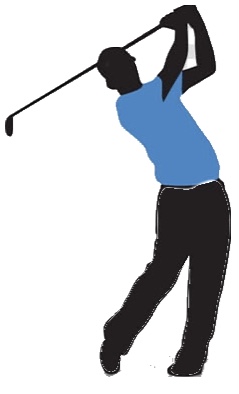| About one in six Americans suffers from some type of arthritis. It is characterized by joint inflammation, stiffness, swelling and pain. Osteoarthritis, the most common form, appears in people over 40, especially in women, and usually gets worse if left untreated. Rheumatoid arthritis affects younger people, including children. This form recedes in about 70 percent of its sufferers as they grow older, and the rest are left to cope with it for years, possibly a lifetime. The following information is based on various materials provided by researchers, and does not presume to give medical advice. Be sure to consult your physician before beginning any therapeutic program.
Below you will find a
list of helpful remedies and suggestions to help you with your arthritis pain.
Just click the links below for more information on a specific topic.
HELPFUL FOODS
Salmon and other
oily fish, such as sardines, halibut, to supply omega-3 oils. Doctors advise
getting omega-3 fatty acids from two or three servings of fatty fish a week.
And guess what contains lots of fish oil? That old standby, cod liver oil,
which is also rich in bone-building vitamin D and inflammation-fighting
vitamin A. One teaspoon of cod liver oil a day should do it. A word of
caution: excessive omega-3 increases the risk of bleeding problems, which
can be hazardous for patients taking arthritis drugs that interfere with
normal blood clotting.
Fresh green and
yellow vegetables to provide beta carotene, vitamin C, and other antioxidants
to reduce cell damage. Eat at least two servings daily.
Grapefruit and
other fresh fruits for citrus flavonoids, substances that are thought to
increase the antioxidant effects of vitamin C; may have an anti-inflammatory
effect. Eat daily.
Peas and other
legumes for zinc, a mineral essential for proper immune system function.
Other good sources include oysters, wheat germ and whole-wheat products, and
milk. Have at least one high-zinc food each day.
Ginger to
benefit from its anti-inflammatory effects. Eat one or two pieces of candied
ginger or use 5g in cooking every 2 or 3 days.
Relief may be
obtained by rubbing painful joints with a nonprescription cream containing
capsaicin, an oil that is found in hot peppers. Capsaicin is absorbed through
the skin and reduces inflammation.
Back to the top
LOSE WEIGHT
Extra pounds put
stress on and cause inflammation and pain in your bones and joints. Research
shows that reducing to a normal weight may very well relieve most of your
arthritis symptoms.
Back to the top
EAT WITH CAUTION
Allergies to
certain foods appear linked to rheumatoid arthritis, particularly those in the
nightshade family of plants: tomatoes, eggplant, potatoes, peppers and
tobacco. Experiment by removing these foods, one at a time, from your diet.
If your arthritis worsens and then improves after five or six days, you may
indeed be allergic. See a doctor for a more complete allergy screening.
Back to the top
AVOID VEGETABLE
OIL
Studies suggest
that vegetable oils, which contain omega-6 fatty acids, aggravate arthritis
symptoms. Cut back on salad dressings, margarine, fried foods, olive, corn
and canola oil.
Back to the top
HEAT UP
Ease pain and
increase circulation to your joints with a heating pad or hot bath. Heat also
helps when your joints feel hot. A hot mud bath may draw out toxins and can
relieve muscle pain. Check a health store for mud preparations that you can
slather on. A similar substance called parafango combines mud and paraffin.
When you apply it, the paraffin hardens to keep the mud in place. Relax under
your mud for at least 30 minutes, take a warm shower, and top it off with a
nice nap.
Back to the top
COOL DOWN
Reduce joint
swelling by soaking them in cold water or covering them with an ice pack or
bag of frozen vegetables wrapped in a towel. If you’ve overworked a joint –
taken too long a walk, for instance – put ice on it right away when you get
home to avoid swelling. Leave it on for 15-20 minutes, remove it for 10-15
minutes and repeat. Continue for up to several hours.
Back to the top
USE HERBS
Aromatherapy is
an ancient Egyptian art rediscovered early in century by a French chemist
named Rene-Maurice Gattefosse. It uses essential oils as lotions, which are
said to penetrate the skin to heal you. Juniper oil relieves arthritis
swelling, while sandalwood improves circulation. A variation on this is an
herb poultice. Mash juniper or sandalwood leaves into a wet pulp and wrap
them with a cloth around your sore joints. Leave on for a few minutes.
Back to the top
TAKE VITAMIN C
Research links
rheumatoid arthritis to vitamin C deficiency. Take a total of 500 mg. of
vitamin C spread out in small doses throughout the day.
Back to the top
MOVE
Exercise
increases your joint flexibility, strengthens your bones and improves your
blood vessels’ ability to move nutrients into your cartilage, and waste
materials out. The Arthritis Foundation recommends daily exercise. Walking
for short intervals, so as not to tire yourself, is very beneficial. Water
exercises are perfect. Studies show, in fact, that the physical benefits of
30 minutes of walking in a pool are equal to those of many hours or walking on
land.
Back to the top
AVOID HEAVY-DUTY
PAINKILLERS
Tranquilizers
and sleeping pills may seem to help, but in the long run they can become
addictive. Take aspirin, ibuprofen or acetaminophen instead.
Back to the top
MASSAGE THERAPY
A full-body
massage by a professional is one of life’s greatest pleasures and a perfect
antidote to arthritis stiffness and pain. You can perform a quick spot
massage on yourself, too. For a sore knee, for instance, compress your thigh
and calf muscles with the palm of your hand or your elbow, pushing down on the
muscle for a few seconds, then releasing, resting and repeating.
Back to the top
YOGA
Effective in
relaxing muscles and improving circulation, yoga also improves your body’s
efficiency in using arthritis medications. This exercise gently flexes sore
arms and shoulders: tilt your head forward, roll it to the right, raise it up
(don’t tilt it all the way back) and roll it to the left. Repeat five times
clockwise, then five times counterclockwise. Follow this by raising each
shoulder individually five times, then raising both together five more times.
Back to the top
DE-STRESS YOUR
LIFE
Researchers
found that arthritic people tend to be self-sacrificing and sensitive.
Remember to take time for yourself – do things that make you laugh.
Take time to relax and be quiet. Think good thoughts. Good companionship helps one to feel loved.
Back to the top
 
|
 Historical Web Sites
Historical Web Sites



 Golf Swings Health Pages
Golf Swings Health Pages Historical Web Sites
Historical Web Sites



 Golf Swings Health Pages
Golf Swings Health Pages